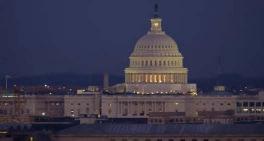Court: Local Wisconsin heath departments can’t close schools
Bar Associations
The Wisconsin Supreme Court ruled Friday that local health departments do not have the authority to close schools due to emergencies like the coronavirus pandemic, delivering a win to private and religious schools that challenged a Dane County order.
The conservative majority of the court, in a 4-3 decision, also ruled that a school closure order issued last year by Public Health Madison & Dane County infringed on constitutional religious rights.
The ruling is another victory for conservatives who challenged state and local orders issued during the pandemic to close businesses and schools, limit capacity in bars, restaurants and other buildings and require masks to be worn. All of those restrictions have either expired or been rescinded by courts.
Friday’s ruling will have no immediate impact because the 2020-21 school year has ended, but it will limit the powers of health departments in the future by preventing them from ordering school closures.
“Even as the COVID-19 pandemic recedes, the court’s decision provides a critical correction that ought to prevent future abuses of power in an emergency,” said Rick Esenberg, president of the Wisconsin Institute for Law and Liberty. That group brought the lawsuit on behalf of five private schools and eight families in Dane County, School Choice Wisconsin Action and the Wisconsin Council of Religious and Independent Schools.
Dane County Health Director Janel Heinrich said the ruling “hinders the ability of local health officers in Wisconsin to prevent and contain public health threats for decades to come.”
The lawsuit targeted an order issued in August by the county health department prohibiting in-person instruction for grades 3-12 at any public or private school. The Supreme Court in early September put that order on hold while it considered the case.
While many private and public schools in the county resumed in-person classes, Madison’s school district remained entirely virtual until March. Its school year ended this week.
The law in question allows local health departments to do what is “reasonable and necessary” to suppress a disease outbreak. It does not specifically grant authority to close schools. There is a law giving that power to the state Department of Health Services secretary.
Related listings
-
Nominee's attack on Democrats poses risk to Supreme Court
Bar Associations 09/26/2018Brett Kavanaugh's angry denunciation of Senate Democrats at his confirmation hearing could reinforce views of the Supreme Court as a political institution at a time of stark partisan division and when the court already is sharply split between libera...
-
Trump's personal attorney has dropped a pair of libel suits
Bar Associations 04/11/2018President Donald Trump's personal attorney dropped a pair of libel lawsuits against BuzzFeed and investigation firm Fusion GPS amid the stir caused by an FBI search of the lawyer's files.Michael Cohen had sued in New York City over publication of the...
-
Court rules that Kushner firm must disclose partners' names
Bar Associations 01/11/2018A federal judge ruled Friday that the family company once run by Jared Kushner isn't allowed to keep secret the identity of its business partners in several Maryland properties.A U.S. district judge in the state rejected the argument that the privacy...

USCIS Issues Clarifying Guidance on NAFTA TN Status Eligibility for Economists
U.S. Citizenship and Immigration Services (USCIS) announced today that it is clarifying policy guidance (PDF, 71 KB) on the specific work activities its officers should consider when determining whether an individual qualifies for TN nonimmigrant status as an economist.
The North American Free Trade Agreement (NAFTA) TN nonimmigrant status allows qualified Canadian and Mexican citizens to temporarily enter the U.S. to engage in specific professional activities, including the occupation of economist. The agreement, however, does not define the term economist, resulting in inconsistent decisions on whether certain analysts and financial professionals qualify for TN status as economists.
TN nonimmigrant status is intended to allow a limited number of professionals and specialists to work temporarily in certain specifically identified occupations in the United States. This updated guidance provides USCIS officers with a specific definition of one such category – economists – allowing them to adjudicate applications in a way that complies with the intent of the agreement. This policy update clarifies that professional economists requesting TN status must engage primarily in activities consistent with the profession of an economist. Individuals who work primarily in other occupations related to the field of economics — such as financial analysts, marketing analysts, and market research analysts — are not eligible for classification as a TN economist.




